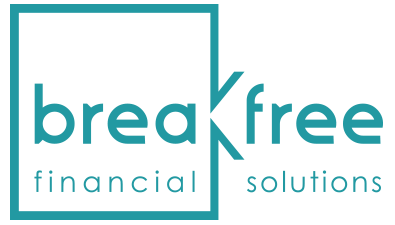Contrary to expectations, the 2018 budget did contain a few surprises for the SMSF sector. While the Government kept its pre-election promise not to increase superannuation taxes, it did announce changes designed to improve the integrity of the super system, and to provide greater flexibility to contribute.
Three-year audit cycle for some SMSFs
Commencing from 1 July 2019, the audit requirement will change from yearly to three-yearly for funds with a history of good record-keeping and compliance. It’s designed to reduce red tape for funds that have had a clear audit history for three consecutive years, and that have lodged their annual returns on time.
No doubt there’ll need to be much discussion with industry on what constitutes a ‘clear’ audit, and the consequences of qualifying an annual audit report.
The maximum number of SMSF members will be increased from 4 to 6
From 1 July 2019, the Government will increase the maximum number of allowable members in new and existing SMSFs from four to six. Small APRA funds are also included.
This change will allow for greater flexibility. Particularly for large families – and for small business operators with multiple owners who wish to pool their superannuation.
As the vast majority of SMSFs – around 90% according to the ATO – only have one or two members, it’s difficult to see this change having a significant impact on the sector. It’s not surprising, therefore, that this measure is estimated to have no revenue impact over the forward estimates.
Funds choosing to take advantage of this change may face increased administrative complexity.
There’ll be the need to make investment decisions for a larger pool of members. And this may lead to a more a conventional investment mix than would have otherwise been the case. Recent research by SuperConcepts and the University of Adelaide shows that as the number of fund members increase, investments tend to become less risky, and that group-think leads towards more familiar assets such as cash and domestic equities. So, funds wishing to expand their membership will need to take care to properly identify and address these behavioural factors.
As well, with decision making becoming less centralised, there’s the increased likelihood of undesirable outcomes. Take for example the scenario of children outvoting their parents on estate planning and other fund matters.
Preventing inadvertent concessional contribution cap breaches by certain employees
From 1 July 2018, employees earning just over $263,000 from multiple employers will be able to nominate that their wages from certain employers are not subject to the superannuation guarantee (or SG).
The measure will allow eligible individuals to avoid unintentionally breaching the $25,000 annual concessional contributions cap as a result of multiple compulsory SG contributions.
Employees who use this measure can negotiate to receive additional income, which is taxed at marginal tax rates, in lieu of SG contributions.
A similar opt-out regime existed under the old Reasonable Benefit Limit rules. Under that regime the choice the employee made to opt out was irrevocable. It will be interesting to see whether the same rules will apply here, or whether employees will be able to opt in or out on an annual basis.
Work test exemption for recent retirees
From 1 July 2019, people aged 65-74 with super balances below $300,000 will be exempt from the work test for voluntary super contributions.
This exemption will only apply in the first year that they don’t meet the work test requirements. Essentially this change means individuals over age 65, who cease work, will be granted a one-year exemption from the need to satisfy the work test. This will provide recent retirees with extra flexibility to get their financial affairs in order.
Better integrity over deductions for personal contributions
Following the relaxation of the contribution deductibility rules in the 2016 budget, there was growing speculation that the Government would move to simplify the ‘notice of intent’ processes for claiming tax deductions on personal super contributions.
However, it appears the Government has decided to retain the current process – and in last night’s budget announced additional ATO funding to ensure the rules work as originally intended.
The additional funding will enable the ATO to develop a new compliance model, and to undertake additional compliance and debt collection activities. The ATO will also modify income tax returns to alert individuals to the notice requirements with a tick box to confirm they have complied.
Disclaimer This is factual information / general information only and is provided by SMSF Administration Solutions Pty Ltd ABN 76 097 695 988 (trading as SuperConcepts). It does not take into account your personal objectives, financial situation or needs or that of any member or trustee of a self-managed super fund. Therefore, before acting on it, you, a member, and the trustee should consider the appropriateness of it, having regard to those matters. Before making a decision about a product you should consider the relevant product disclosure (PDS) statement available from the product issuer. It’s important to consider your particular circumstances and read any relevant PDS, terms and conditions or document before deciding if a financial product, service or strategy is right for you, the member, or the trustee and their circumstances. This information is not intended to imply any recommendation or opinion about a financial product or service, or any investment strategy or recommendation. This documentation has been prepared based on current relevant law and guidance as at the date of this fact sheet, and is subject to change. While care has been taken to ensure it is consistent with current relevant law and guidance, SMSF Administration Services Pty Limited, and its related bodies corporate will not be liable for any losses or damage incurred by you or the trustee(s) of your fund as a result of you or the trustee(s) using the information. Accordingly, we recommend you seek your own professional advice, including taxation advice, for your circumstances, and consistent with the governing rules of your super fund.

